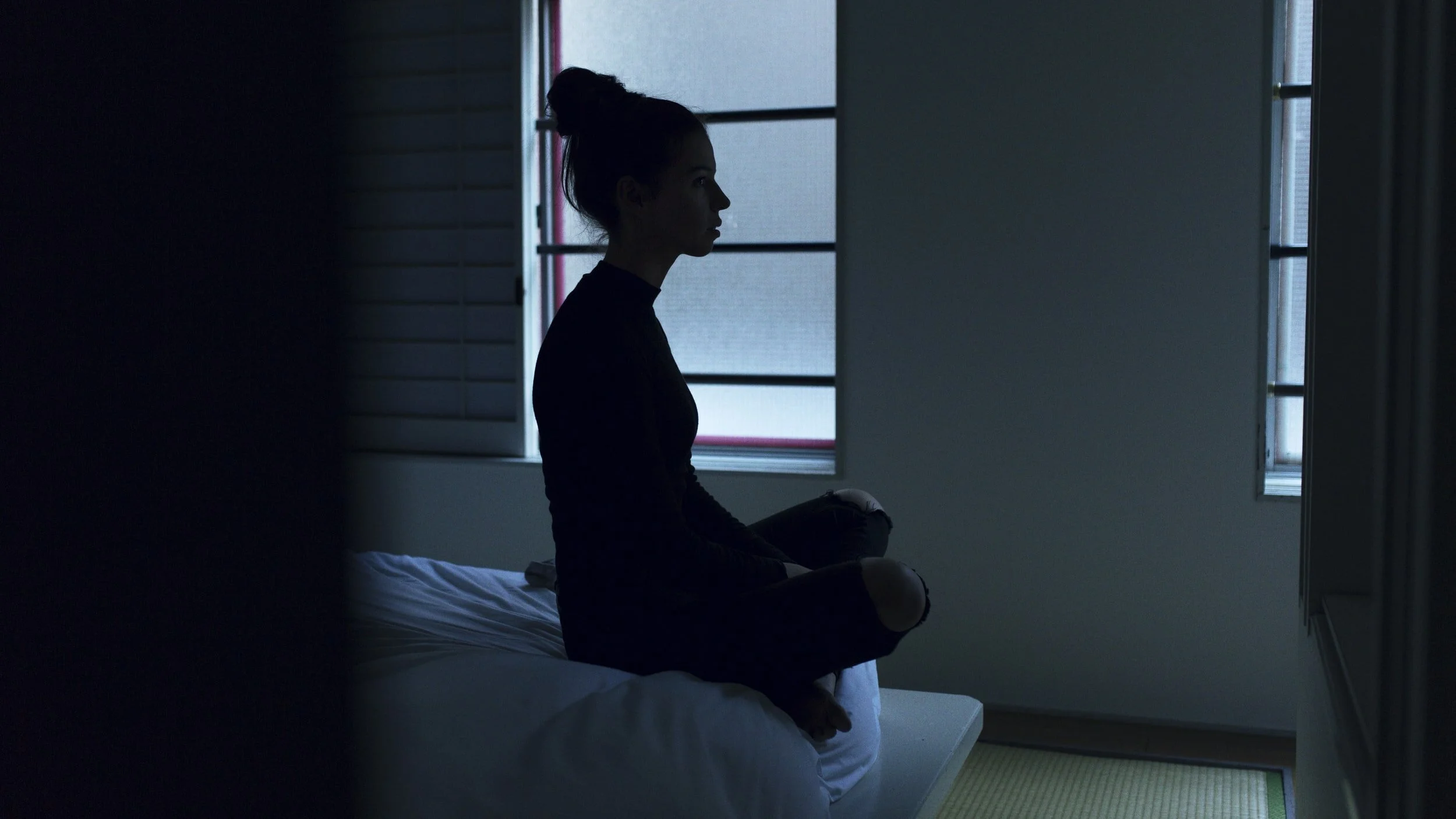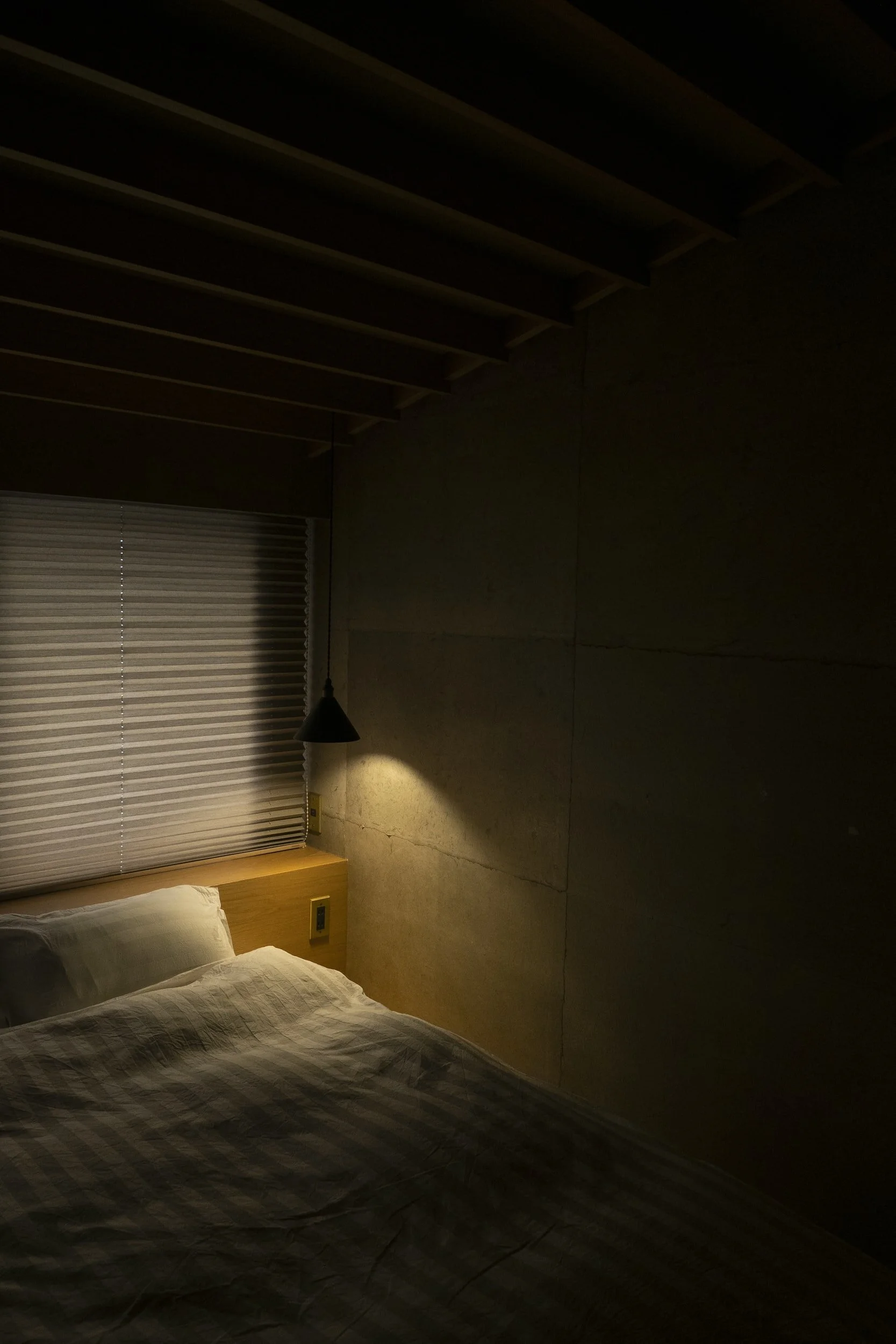Find restful sleep by trying these tips!
Do you have problems falling asleep? Nearly 70 million adult Americans have reported having trouble falling asleep in 2019 alone. Chances are your sleep is affected by anxiety, overthinking or other stressors from your day. Even if you do not have an anxiety or depression disorder, these feelings can still at times overwhelm us and cause us to toss and turn all night. Of course we always push for mindfulness and meditation and these tools can help us find the sleep we need, but sometimes there needs to be more strategies in the arsenal to help combat sleep problems. Though medication is often the solution here, many sleep medications require you to sleep a certain number of hours and at least for me, leave me feeling exhausted and not refreshed at all even though I did end up falling asleep. Because of these issues, I am always collecting new ways to help myself fall asleep from rituals to meditation, breathing and diet. Here are some of my favorite ways to find elusive sleep.
1- Physical Activity
This is almost always the number one for me. If I wasn't very physically active during the day I absolutely will not sleep. It doesn't matter if I had a grueling intellectual day, I can not rest without some activity. Of course this activity does not have to be straight up exercise, it can be a game or cleaning the house, strolling with a friend or dancing. But giving yourself just 10 minutes of cardio a day will not only make you feel better, but make you sleep better as well. Just be sure to avoid exercise 2 hours before bedtime. The adrenaline that releases from physical activity will remain active for 2 hours which will counteract the sleep enhancing abilities of exercise.
2- Bed Time isn't just when you sleep
Do not confuse your bedtime with when you fall asleep. We need to bring our bodies down from the day and prepare ourselves for a night of rest. You can do this by creating a bedtime routine or simply giving yourself the permission to do nothing for an hour before bed. Read, or listen to music or watch a TV show. Just be sure not to have too much screen time in this period or you may run the risk of keeping yourself up longer.
3- Avoid Screen Time
As much as possible, avoid social media and screen time before bed. Social sites are designed to keep you scrolling, we all have had the experience of losing an hour or two due to scrolling through social media. Give yourself time to check your accounts, but once it is time for bed, avoid logging back in. Not only is it addictive, it also can run the risk of raising your blood pressure and getting you emotionally worked up.
4- Follow Natural Light Cycles
Our bodies are designed to react to the lights around us. You ever notice how you will just start to naturally wake up when your room gets to a certain lightness? This is because our bodies sync with the day and night times around it. Of course nowadays one is really working from sunrise to sunset, but you can still take advantage of this natural occurrence by using lights to wake you up or bring you down. Slowly bring the lights down lower as you get ready for bed and be sure to keep your room very dark when it is time for sleep. You will be surprised with how much quicker you can fall asleep!
5- Limit your Alcohol
Though alcohol is a depressant, the sleepiness you feel from alcohol is similar to the sleepiness you feel from sleep medication. It may put you to sleep, but the sleep will not be as restful. This doesn't mean you can not drink alcohol at all, just have your last cocktail a couple hours before bed and be sure to give yourself a glass of water for every cocktail you have throughout the evening to help counteract the hangover in the morning!
6- Limit your Caffeine
This one is tricky. You get less sleep so you need more caffeine, yet the more caffeine you drink in the day, the less likely you are to be able to get a good night's sleep. There is no easy solution here, if you are on the sleeplessness/caffeine cycle you are going to have a couple days of exhaustion while you allow your body to reset. This does not mean to avoid caffeine all together though! Caffeine, specifically coffee and tea, are great for protecting your brain from dementia and Alzheimer's and the equivalent caffeine of 2 cups of a coffee a day increases your mental capacities by up to 20 percent! The trick is to limit caffeine after a certain part of the day. Caffeine hits your body 30 minutes after ingestion but again six hours later. So if you are drinking caffeine late in the afternoon it could be causing sleep problems later in the evening.
Have you tried any of these tips and did they work for you? Reach out to us at info@bullionite.com with your comments and questions.




